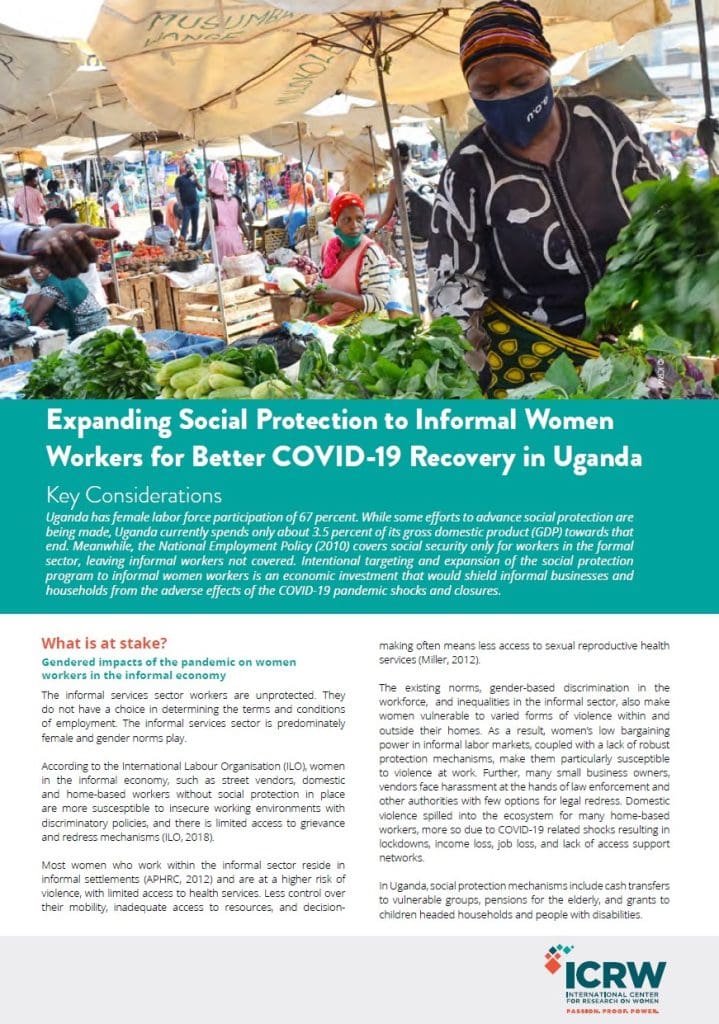
Expanding Social Protection to Informal Women Workers for Better COVID-19 Recovery in Uganda
2021
 Uganda has a female labor force participation of 67 percent. While some efforts to advance social protection are being made, Uganda currently spends only about 3.5 percent of its gross domestic product (GDP) towards that end. Meanwhile, the National Employment Policy (2010) covers social security only for workers in the formal sector, leaving informal workers unsupported. Intentional targeting and expansion of the social protection program to informal women workers is an economic investment that would shield informal businesses and households from the adverse effects of the COVID-19 pandemic shocks and closures.
Uganda has a female labor force participation of 67 percent. While some efforts to advance social protection are being made, Uganda currently spends only about 3.5 percent of its gross domestic product (GDP) towards that end. Meanwhile, the National Employment Policy (2010) covers social security only for workers in the formal sector, leaving informal workers unsupported. Intentional targeting and expansion of the social protection program to informal women workers is an economic investment that would shield informal businesses and households from the adverse effects of the COVID-19 pandemic shocks and closures.
According to the International Labour Organisation (ILO), women in the informal economy, such as street vendors, domestic and home-based workers without social protection in place are more susceptible to insecure working environments with discriminatory policies, and there is limited access to grievance and redress mechanisms. Most women who work within the informal sector reside in informal settlements and are at a higher risk of violence, with limited access to health services. Less control over their mobility, inadequate access to resources, and decision-making often means less access to sexual reproductive health services.
In Uganda, current social protection mechanisms include cash transfers to vulnerable groups, pensions for the elderly, and grants to children headed households and people with disabilities. What more could be done?
In this brief, learn more about the broad impacts of COVID-19 on women in the informal economy, the social protections already in place, and our recommendations for policy and practice.
Wandera, N., Suubi, K., Ajema, C., Afifu, C., and Mugyenyi, C. (2021). Expanding Social Protection to Informal Women Workers for Better COVID-19 Recovery in Uganda: Key Considerations [Policy Brief]. International Center for Research on Women.
